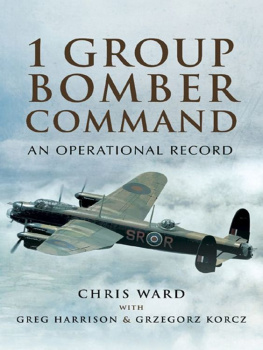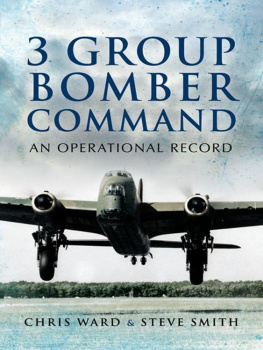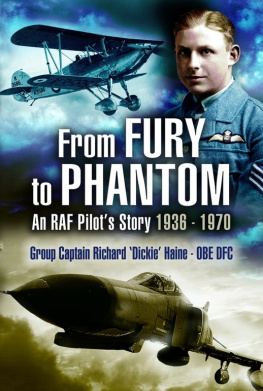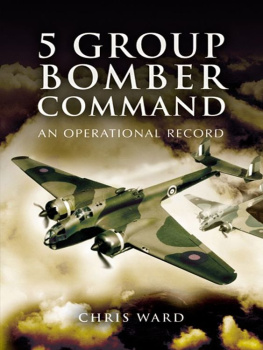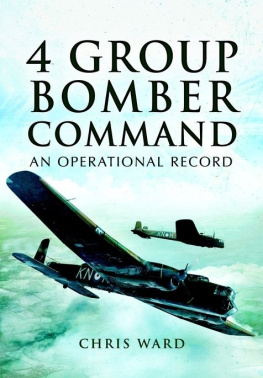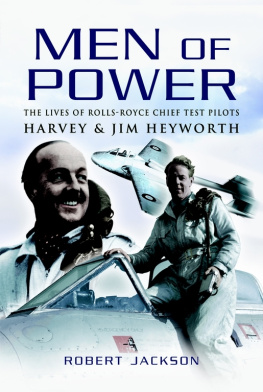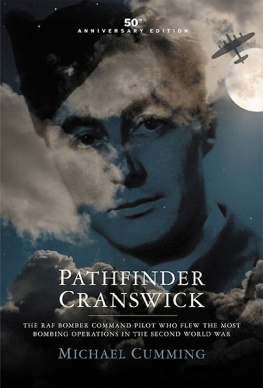M artin Middlebrook, the military historian, together with his research colleague Chris Everitt, has written a book, The Bomber Command War Diaries , (first published by Viking in 1985 the present imprint is by Midland Publishing) which has become the standard basic work of reference on the campaign of Bomber Command, Royal Air Force, in the Second World War, 1939 45. It is a complete review of all the raids and many background stories to the campaign. It includes information obtained from local archives in Germany, Italy and the occupied countries on the effects of the raids and makes retrospective observations in a scholarly approach to the subject.
I would like to thank Mr Martin Middlebrook for his permission to quote from their book.
I would also like to thank my wife Jane, my son, Christopher, and my daughter, Amanda, for their help and encouragement, which has made this story more enjoyable to write and without which it would not have been written.
Help often came from the clear memory and encyclopaedic knowledge of Derek Evans, our Wireless Operator in 625 Squadron. He and I are the only two now left of our crew of seven, but we remember with fond gratitude Titch, Torry, Colin, Reg and Ken, the other members of our crew, without whose courage and efficiency we should not have survived.
I was a new and very late comer to the task of publishing a book, but Mrs Juanita Rothman voluntarily elected to guide me. Thereby I found a friend.
Prologue
F ighter! Fighter! Port! Down!
The urgent shout from the tail gunner rings through the intercom. It electrifies not only me, the pilot of the Lancaster, but every man at his station aboard the aircraft. Instantaneously I throw the control stick forward and away from me, and pull the aileron wheel down to the left, while my left foot kicks forward on the rudder bar. The left wing drops down and the 20 tons of aircraft plunges toward the ground curving as it goes. A few seconds later I roll the plane the other way to dive now to the right, then roll again, hauling the stick back so that the suction of centrifugal force drains the blood from my face and, blurring my vision, pulls my cheeks away from my teeth, as we climb to the left.
Now the voice of Torry the mid-upper gunner crackles: Hes gone over us, Skip, up to the right. I cant see him now. My flying instruments are spinning madly in their gimbals. They are of no help, but the dawn is not far away, and the sky is dimly divided into two, a darker half and a lighter; only a tiny difference in colour but enough to give me the suspicion of a crazily tilted horizon by which I can struggle with the controls and get back into level flight.
At the mid-upper gunners comforting words, the bomb aimer and the engineer, and I too, as soon as I have got the aeroplane straight and level, all look forward and up and right, into which part of the night sky the attacking fighter has apparently disappeared. Suddenly, where there was darkness there now hangs an orange ball of fire. The fighter has got some other poor devil.
There but for the grace of God, I mouth, and but for the vigilance of little Titch in the tail, too, I might well have added.
Then we hear the quiet unruffled voice of the navigator: Course Two Six Zero, Skip, and continue climbing back to 15,000 feet.
Thank you, Colin, I say. Well done, Titch. My gratitude echoes in the minds of all the crew for their rear gunners alertness and because my reaction was instantaneous. We are still over Germany but on our way home towards the French coast, our bombs delivered above the huge engineering works at Krupps in the Ruhr. The trip has been scary enough, a near collision over the target and a lot of flak, and we could have done without this extra excitement, up here in the dark sky.
There is silence now in the aircraft, a silence against the background of the regular heavy drone of the four engines. As long as the sound is regular, none of us will be aware of it, but had the sound become unsynchronised, we would have heard it at once, alert to a possible fault. My hands rest lightly on the controls, my attention divided between my instruments and watching the air before me. The navigator is drawing faint neat lines on his chart, checking and rechecking his calculations. The wireless operator peers at the bright disc of his Fish-pond dial, watching the relative speeds of tiny dots of light that are other aircraft in the bomber stream and for any which are coming up too quickly and might be a German night fighter about to attack. The flight engineer is watching his petrol gauges, ready to change over from a fuel tank in one wing to a tank in another and keep the weight of the aircraft balanced. The bomb aimer, now front gunner, in the nose and both gunners in their turrets quarter the sky all round us in our ceaseless watch.
On we fly, grateful for every mile of progress away from the dangerous pyrotechnics above that inferno that we helped to create.
As we fly on, the light of the sky grows with the coming of dawn. Colour is returning to our surroundings. Below us are the green fields of northern France. We cross the French coast and are over the sea.
Course 300, Skip, and descend to 8000 feet. We shall be flying up the Orwell soon.
Course 300. I know why Colin has added that information. Colins home is in the small town of Halstead in Essex, and he knows that a boat in which I often sailed before the war is lying in a mud berth on the shore of the River Orwell. All that Colin himself can see, on his navigators table behind his black-out curtains, is a large white sheet of paper, but that chart is showing him that he will soon be above his beloved Essex. In his minds eye, he sees his mother and one of his teenage brothers and another man in their small bakehouse in Halsteads main street. He knows that their forearms are dusted white with flour and their hands gloved, as they pull out of the oven, this early morning, as every morning, the hot trays of new-baked loaves. It is as though he can even smell the new brown-crusted bread, as he has always done, helping his mother after his father died. He doubts they know he is among the pre-dawn drone they hear above them.

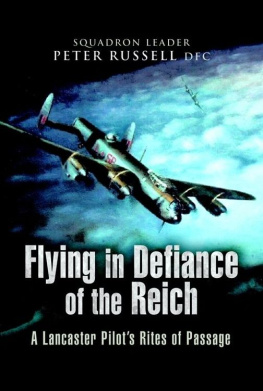



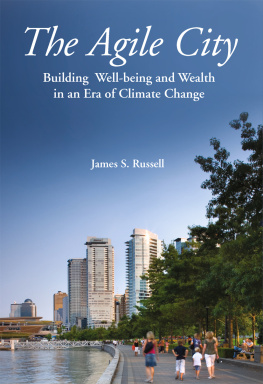

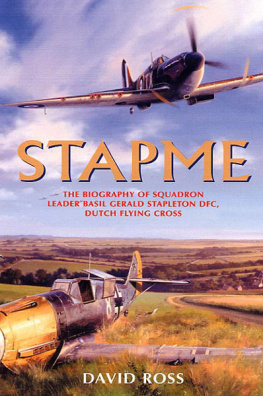

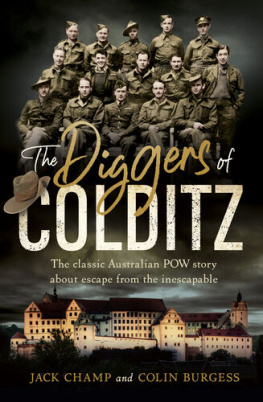
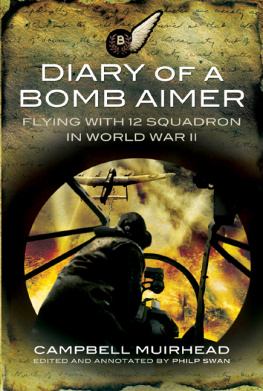
![Bar Wing Commander Guy P. Gibson VC DSO - Enemy Coast Ahead [Illustrated Edition]](/uploads/posts/book/180257/thumbs/bar-wing-commander-guy-p-gibson-vc-dso-enemy.jpg)
